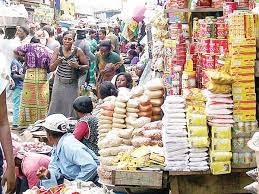Latest Nigeria’s Purchasing Managers Index (PMI) report indicated that the index dropped to 50.2 in August, down from 51.7 in July, which showed that efforts by the government to grow the economy are yielding minimal impact with the MPI marking the lowest rate over the past five months.
As expected the report is sending worrying signals for Nigeria’s private sector investors, as business activity dipped into contraction for the first time in five months.
A key highlight of the PMI for August is the drastic increase in both input costs and output charges, reaching the highest levels since the survey’s inception nearly a decade ago.
The report clarified: “Both overall input costs and output charges increased to the largest extent since the survey began almost a decade ago. Inflation again reflected higher transportation costs as a result of the removal of the fuel subsidy, plus currency weakness. Rising transportation costs also caused supplier delivery delays.”
The PMI for August also showed rates of expansion in new orders and employment were also sluggish as the rate of new business acquisition remained the softest in the current five-month growth sequence.
Specifically, the report disclosed that “August saw only a marginal increase in new business, with the rate of expansion the softest in the current five-month sequence of growth. Similarly, employment also rose only marginally.
Also, in the month under review, the employment sector also experienced only a marginal rise which further indicated that the organized private sector (OPS) operators continued to struggle with escalating costs amid low demand.
When analyzed on sector-specific basis, the business activity midway through the third quarter indicated that not all sectors are created equal in this downturn.
The report stated: “Meanwhile, business activity decreased slightly midway through the third quarter, ending a four-month period of expansion.”
“Sector data pointed to a drop in activity in wholesale & retail and no change in services. Meanwhile, agriculture and manufacturing continued to see output increase.”
Despite its impressive performance over the months in terms of its contributions to the GDP, the PMI for August showed that the service sector recorded no significant change, indicating a mixed impact across sectors.
But then, amid these challenges, the report reflected that business sentiment improved from its record low but remains historically weak.






